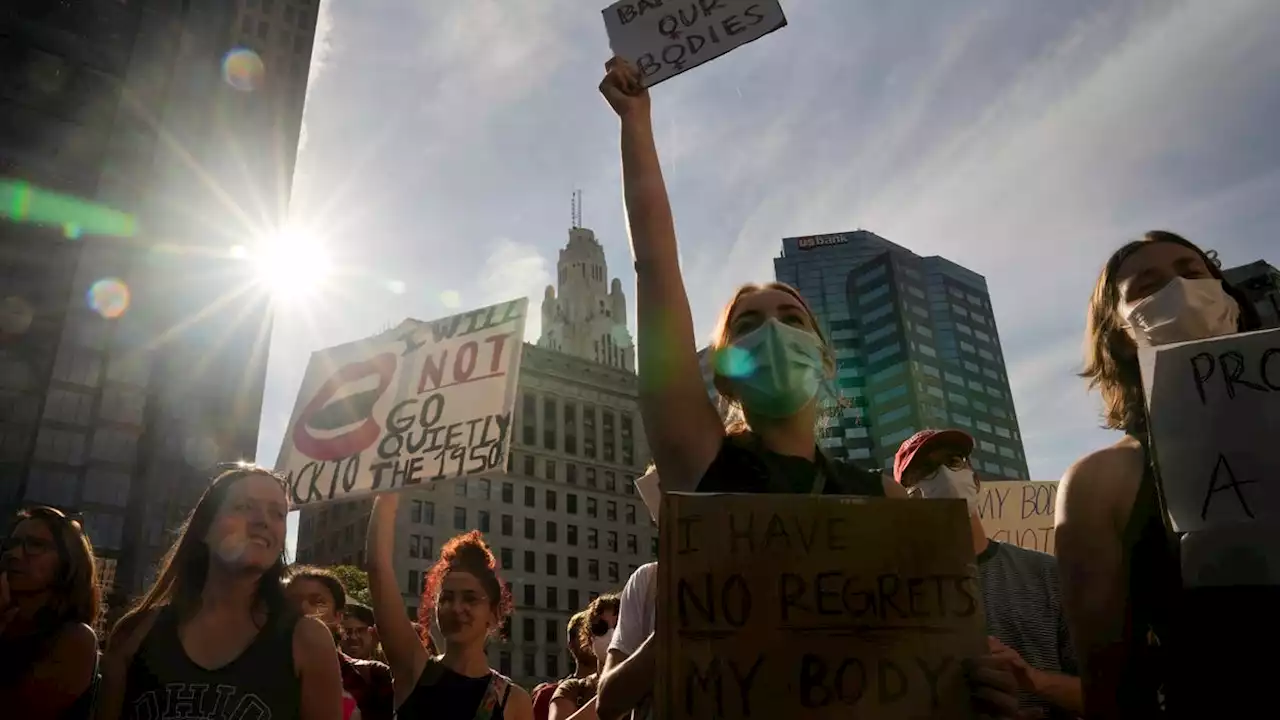The US Supreme Court’s privacy rulings chart an old battle and could inform life after Roe.
based on recognition of an “emerging awareness” of their equal claim to dignity in profoundly important relationships, notwithstanding the lack of historical protection for these rights.signaled an abrupt reversal of course. While the court did not reject the concept of substantive due process outright, it rejected any basis for recognizing “fundamental rights” other than in the text of the Constitution or in deeply rooted historical traditions.
based on recognition of an “emerging awareness” of their equal claim to dignity in profoundly important relationships, notwithstanding the lack of historical protection for these rights.signaled an abrupt reversal of course. While the court did not reject the concept of substantive due process outright, it rejected any basis for recognizing “fundamental rights” other than in the text of the Constitution or in deeply rooted historical traditions. Because the right to an abortion was not in the text, and because the framers of the Fourteenth Amendment in 1868 did not regard abortion as a fundamental liberty, the court ruled that there was no basis for special constitutional respect for a woman’s right to choose. Instead the majority found the right to make decisions concerning pregnancy to be an ordinary liberty of the same rank as mundane choices about lifestyle, commerce, or recreation, subject to freewheeling regulation so long as the government acted rationally.’ approach would contain fundamental rights entitled to strong constitutional protection to a narrow band of liberties so universally respected across time that there would be little likelihood of political interference in any event.Dobbs
put it, “to make and implement important personal decisions without governmental interference.” And in, that right shrank considerably. It’s why many suggest that the next rights in the crosshairs could be those to contraception or same-sex marriage, as Justice Thomas openly encouraged in his concurrence: If these rights are not found in the text of the Constitution and if the framers of the Fourteen Amendment could not have imagined them in 1868, it’s not obvious why they would stand on firmer ground under the logic ofThe impact of the court’s opinion indoesn’t spell the end of legal protection for other forms of privacy, both under the Constitution and other laws. It’s clear from the text of the Fourth Amendment, for example, that the government can’t freely search homes without a warrant. Thealso doesn’t say anything about what Justice Alito called a “very different” sort of privacy in his majority opinion, “the right to shield information from disclosure.” It may seem a thin distinction, given that both autonomy and disclosure interests spring from a common root in privacy in its “right to be let alone” sense, but constitutional autonomy rights and the right of informational privacy have different objectives and often different legal foundations.undermines the sort of privacy that appears in statutes, regulations, and the so-called common law, the law that has developed over time through court opinions. And even as the conservative court strips away rights that have come to mean everything for so many, the justices have protected privacy in that second sense, even in cases with constitutional implications.that a “gravity of privacy concerns” supported shielding the identities of donors to charities
. There, the justices decided the case in part on grounds of First Amendment freedom of association—the freedom to donate to a charity without revealing one’s identity to the state—and they seemed particularly worried about the doxing of such donors: “Such risks are heightened in the 21st century and seem to grow with each passing year,” the justices wrote, “as ‘anyone with access to a computer [can] compile a wealth of information about’ anyone else, including such sensitive details as a person’s home address or the school attended by his children.”
That interior quote came from an earlier opinion by none other than Alito, the author of the majority opinion inseverely cut back the scope of constitutional protection for privacy and all but rejected any general autonomy right of privacy broader than specific textual guarantees, it did not wipe away all privacy protections. First, the textual guarantees of privacy thatrelied on—the Fourth Amendment’s limit on government search and seizure, the Fifth Amendment’s bar against self-incrimination, and so on—remain.did not directly undermine older precedents protecting other aspects of individual privacy from invasion, such as the right of bodily integrity.did was reject the idea that the Constitution allows the courts to recognize “fundamental” liberties beyond those explicit in the text or deeply rooted in the nation’s history. It left standing, at least for now, other privacy decisions that recognize fundamental rights to contraception and of gay people to sexual intimacy and marriage.
And, if it rejects Justice Thomas’ urging that those precedents too be overturned, it may leave in place the roots for a broader understanding of constitutional privacy by a future Supreme Court.
The same scenario might apply to what the majority considered that other sort of privacy. That an alleged assassin, said to be enraged by the leaked draft opinion in, turned up outside the home of Justice Kavanaugh weeks later is likely only to heighten the justices’ appreciation for the value of informational privacy, including what others would consider a mundane matter: one’s home address.
Brasil Últimas Notícias, Brasil Manchetes
Similar News:Você também pode ler notícias semelhantes a esta que coletamos de outras fontes de notícias.
 The 2 Man Crew Mandate Threatens US Leadership In Freight RailThe Biden administration wants to achieve climate and safety with driverless trucks. Why not freight trains?
The 2 Man Crew Mandate Threatens US Leadership In Freight RailThe Biden administration wants to achieve climate and safety with driverless trucks. Why not freight trains?
Consulte Mais informação »
 U.S. Treasury yields higher as investors await consumer confidence, home prices dataU.S. Treasury yields were higher on Tuesday as investors await a fresh batch of data for further clues on the health of the economy.
U.S. Treasury yields higher as investors await consumer confidence, home prices dataU.S. Treasury yields were higher on Tuesday as investors await a fresh batch of data for further clues on the health of the economy.
Consulte Mais informação »
 Russian superyacht seized by US arrives in San Diego BayA $325 million superyacht seized by the United States from a sanctioned Russian oligarch arrived in San Diego Bay on Monday.
Russian superyacht seized by US arrives in San Diego BayA $325 million superyacht seized by the United States from a sanctioned Russian oligarch arrived in San Diego Bay on Monday.
Consulte Mais informação »
 Canadian government not saying if it will follow U.S. with Havana Syndrome compensationLast week, the U.S. announced they would be cutting cheques for embassy workers afflicted with the so\u002Dcalled Havana Syndrome — a series of symptoms ranging…
Canadian government not saying if it will follow U.S. with Havana Syndrome compensationLast week, the U.S. announced they would be cutting cheques for embassy workers afflicted with the so\u002Dcalled Havana Syndrome — a series of symptoms ranging…
Consulte Mais informação »
 Dozens found dead in trailer in US state of TexasUPDATE: US officials say 46 people were found dead and 16 others were taken to hospitals after a tractor-trailer rig containing suspected migrants was found on a remote back road in Texas state
Dozens found dead in trailer in US state of TexasUPDATE: US officials say 46 people were found dead and 16 others were taken to hospitals after a tractor-trailer rig containing suspected migrants was found on a remote back road in Texas state
Consulte Mais informação »
 Where can Ohioans get abortions after the U.S. Supreme Court ruling?Abortion is still legal in Ohio but only up to about six weeks into pregnancy. After that, patients will likely have to travel to other states.
Where can Ohioans get abortions after the U.S. Supreme Court ruling?Abortion is still legal in Ohio but only up to about six weeks into pregnancy. After that, patients will likely have to travel to other states.
Consulte Mais informação »
